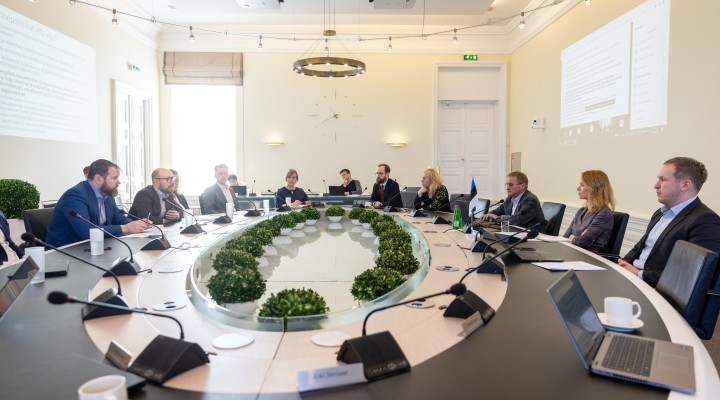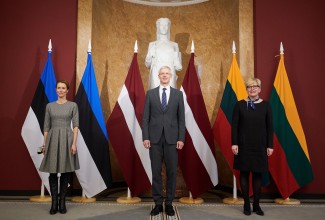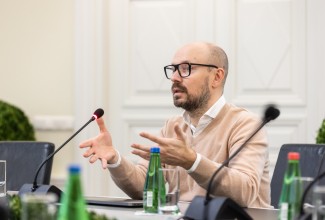The focus of the experts was primarily on short-term activities that can be integrated into both the ‘Estonia 2035’ action plan and the budget strategy.
“The need for the green transition has been talked about for a long time, but the war between the Putin regime and Ukraine has probably made everybody understand why the implementation of the green transition is important. We need to end energy dependence on Russia, reduce supply chain disruptions that make companies vulnerable, and ensure the resilience of our economy and jobs in a changing world. The assessment of the experts also confirms that in the suddenly changed security situation, we must ensure our energy security, and for this, it is necessary to move forward at a faster pace with the green transition and the digital revolution,” said Prime Minister Kaja Kallas, Chairman of the Green Policy Committee. The Ministry of Economic Affairs and Communications must evaluate the proposals in the field of energy and submit the action plan to the cabinet meeting of the government by the end of April.
Lauri Tammiste, head of the Green Policy Expert Group, emphasised that research shows that, taking into account all the direct and indirect effects, implementing the green transition is cheaper than postponing it because the cost of inaction to society is constantly rising. “The green transition, together with the digital revolution, is a great economic opportunity and it can be turned into a success story for Estonia. It is important to make wise choices that take into account the local context at both the Estonian and European level. One of the main issues of the green transition is how to make the investments necessary for the environment and society as a whole profitable and motivating for the private sector as well as individuals,” said Tammiste.
In the light of the security crisis, the experts proposed a number of measures that should be implemented as soon as possible to ensure the energy independence of Estonia, increase energy and resource savings, and accelerate the introduction of renewable energy. It is important that these proposals do not run counter to the longer-term goals of the green transition. The main recommendations concern the need to simplify procedures and access to funds and to speed up the implementation of energy projects of national importance.
The importance of the local level was also emphasised. For example, the experts suggested establishing a link between contributing to the green transition goals and local government funding, providing additional advice and support to local authorities. It was also emphasised that it was important to answer questions about renewable energy in communities.
According to the experts, the completed developed energy projects and technologies must be implemented quickly to ensure continued security of supply in the heat economy and independence from Russian natural gas for the next heating period. It is also important to process all building permits for renewable energy and make it easier to connect to the power network.
In addition, the need for grants, loans, and guarantees to encourage households and businesses to invest in solar power, heat pumps, bioenergy solutions, and battery storage was emphasised.
According to the expert group, the use of oil shale electricity as a security of supply reserve must be limited to a specific term. Otherwise, it will crowd out investments in new clean capacity.
In order to encourage the Estonian economy and society as a whole to move towards a more environmentally friendly way of life, decisions at all levels must be in line with the goals of the green transition.
The experts recommended that the country draw up a roadmap for the green transition, setting out clear tasks for the various parties, with key indicators and funding.
The rapporteurs emphasised that activities that improve the quality of life which have a number of positive side effects must be at the heart of the green policy. For example, more efficient spatial planning can reduce car use and encourage walking or cycling, which, in addition to reducing greenhouse gas emissions, has a positive impact on health.
The experts agreed that each budget expenditure should contribute to the achievement of the green objectives to the maximum extent and should not be to the detriment of any of them. The need to create an effective change management scheme, involving experts on a permanent basis, was also highlighted.
The report with recommendations in several other areas will be completed in full by the end of March and will be published on the website of the government.
Photos: https://flic.kr/s/aHBqjzGcmU




